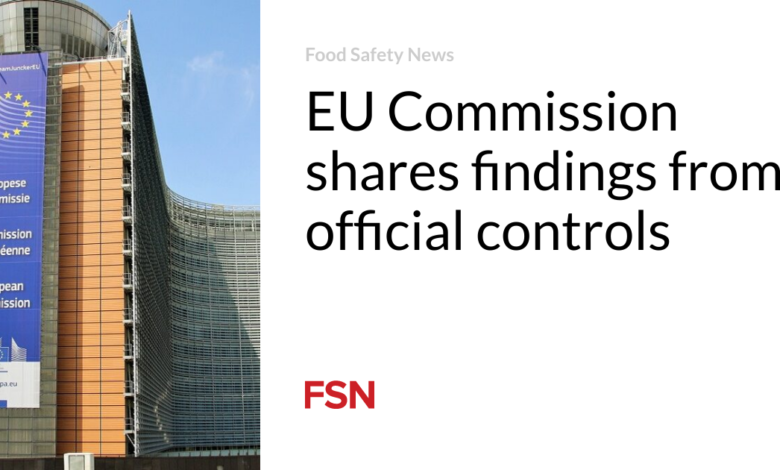EU Commission shares findings from official controls

An analysis by the European Commission has found national authorities are largely doing enough to ensure companies are complying with the rules, but there are areas for improvement.
A report covers data submitted by European countries on their official controls and related EU Commission activities in 2022.
In 2022, there were 16.4 million businesses within the scope of official controls and national authorities carried out around 5 million controls on them. These checks identified 1.2 million non-compliances, leading to more than 476,000 administrative penalties and 12,100 legal actions.
More than 1 million controls were carried out at both food service and food wholesale levels. Non-compliances were mainly found in food service and animal transport. Penalties were mostly applied in food service and food wholesale.
Non-compliances and penalties for microbiological criteria were highest in the fresh meat and meat product sectors. For pesticide residue issues, fruit and vegetables was the main category. For irradiation of food, 85 non-compliances were identified, leading to 63 administrative penalties and one case of legal action.
Reasons for non-compliance include ignorance of legislation by businesses and, in some cases, intentional misconduct. Problems mentioned include food hygiene issues, following documented procedures, and self-control systems, and labeling.
Factors impacting controls
National authorities only provided limited information on controls targeting fraudulent and deceptive practices. Examples were controls on honey, olive oil, use of ingredients past their use-by date, forged animal passports, and illegal domestic slaughter.
The EU Commission highlighted good practices, such as Latvia having an indicator on the performance of officials; Belgian authorities defining barometers based on the results from official controls; and Danish authorities using the number of foodborne disease cases caused by Salmonella and the number of recalls.
Several EU countries said the number of controls increased compared to previous years following a lifting of measures related to the COVID-19 pandemic. Others still reported negative effects from such measures on their ability to completely carry out planned controls.
Other factors that had a negative impact on inspection programs were insufficient resources (staff, financial, and equipment), animal health (e.g. African swine fever and avian influenza) and plant health issues, Brexit, and the war in Ukraine.
Hungarian authorities reported on the positive impact of a more advisory approach, in addition to enforcement action. In Belgium, businesses certified under the national validated self-checking guides are eligible for lower fees and a reduced frequency of official controls.
On resources, Czech Republic reported a lack of funding for laboratory diagnostics towards the end of the year, resulting in limited sampling and testing. Bulgaria mentioned a downward trend in the number of officials, combined with a rise in businesses.
EU Commission oversight
The EU Commission carried out 120 checks on the official control systems of EU countries in 2022. Sixteen related to food of animal origin and five to food of non-animal origin. This resulted in 363 recommendations to countries of which 77 related to food of animal origin and 11 to food of non-animal origin.
Audits in the fisheries sector found problems in the registration of small fishing vessels, controls of landing sites and related operations and a lack of controls of vessels that land in other EU countries. Also, there was concern the use of alternative histamine methods might undermine the reliability or validity of test results. Authorities often had difficulties meeting planned inspection frequencies.
Audits in the meat sector found weaknesses in the training and supervision of official veterinarians and the effectiveness of controls in low-throughput slaughterhouses. Common shortcomings in the dairy sector were the enforcement of operator procedures on testing raw milk and verifying heat treatment.
Audits on microbiological risks in primary production confirmed improvements from previous visits. However, sprouting businesses were still not adequately controlled. Registration of primary producers needed to improve so they can be risk-assessed and included in the control system at an appropriate frequency.
(To sign up for a free subscription to Food Safety News, click here.)



